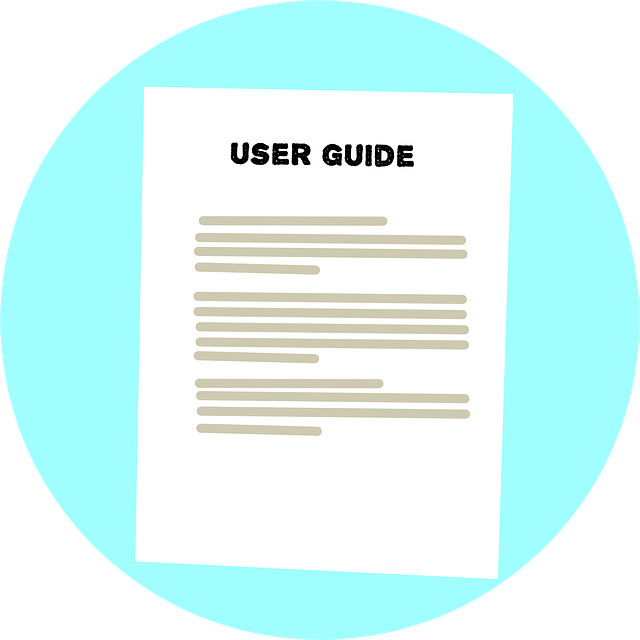Professional translation services for UK user manuals and instruction guides are vital to overcome language barriers, enhance customer satisfaction, and improve product adoption. Choosing reputable agencies with native UK translators ensures accuracy, cultural relevance, and regulatory compliance, preventing customer frustration and legal issues. Advanced tools and quality assurance processes significantly reduce errors. Tailored content boosts SEO, user experience, and customer connections, with 85% of consumers abandoning untranslated websites.
In today’s globalized market, ensuring clear communication across languages is paramount, especially when targeting the UK audience. For businesses seeking to launch products or services here, professional translation services for user manuals and instruction guides are not just beneficial—they’re essential. Accurate translations go beyond simple word-for-word substitutes; they demand an understanding of cultural nuances and local terminology to convey instructions effectively. This article delves into the critical role translation plays in facilitating successful product adoption and safety, exploring why it’s crucial to trust expert translators for your UK market materials.
- Understanding the Importance of Professional Translation for UK Market
- Choosing the Right Translation Service for User Manuals and Instruction Guides
- Ensuring Quality and Accuracy in Technical Translation Projects
- The Benefits of Localized Content for Better User Experience in the UK
Understanding the Importance of Professional Translation for UK Market

In today’s globalized marketplace, professional translation services are no longer a luxury but an indispensable asset for businesses aiming to thrive in the UK market. The importance of accurate and culturally sensitive translations cannot be overstated, especially when it comes to user manuals and instruction guides. These documents serve as crucial communication tools, guiding users through the proper use and maintenance of products, and professional translation ensures that this vital information is conveyed effectively across diverse linguistic landscapes.
For instance, consider a UK-based manufacturer looking to expand its product line internationally. Offering user manuals in multiple languages is essential for several reasons. Firstly, it removes language barriers, enabling users from different linguistic backgrounds to understand and appreciate the product’s features fully. Secondly, high-quality translations can enhance customer satisfaction and loyalty by demonstrating the company’s commitment to accessibility and inclusivity. Furthermore, professional translation services can adapt content to local cultural norms and preferences, ensuring that instructions are not only understood but also accepted and followed by users in the UK market.
Recent studies highlight the impact of poor translation on cross-border commerce. A survey by the European Commission revealed that 64% of consumers have encountered problems using a product due to inadequate or incorrect information in the user manual. Conversely, well-translated manuals can significantly improve product adoption rates and reduce customer support costs. When seeking translation services for UK user manuals and instruction guides, businesses should prioritize professional agencies with native-speaking translators who possess a deep understanding of both the source and target languages and cultures. This expert perspective ensures that technical accuracy is maintained while enhancing readability and cultural relevance, ultimately fostering successful market penetration.
Choosing the Right Translation Service for User Manuals and Instruction Guides

Choosing a reliable translation service for user manuals and instruction guides is vital when launching products or services in the UK market. With stringent regulations and diverse regional variations, ensuring accurate and culturally sensitive translations is paramount. The consequences of poor translations can range from customer confusion to legal issues, highlighting the importance of selecting the right partner.
When evaluating translation services for UK user manuals, consider their expertise in technical documentation. Look for providers with experienced translators who specialize in your industry, as they will possess the depth of knowledge required to convey complex information accurately. For instance, medical device manufacturers should opt for services with healthcare professionals on staff to handle intricate terminology and regulatory requirements.
Beyond proficiency, service quality is a key differentiator. Reputable translation companies offer comprehensive quality assurance processes, including proofreading, editing, and desktop publishing (DTP) services to ensure visual fidelity. Some even employ advanced machine translation (MT) engines but emphasize the importance of human oversight to avoid errors. Data suggests that professional translations can enhance product adoption rates by up to 20%, emphasizing their impact on user experience and business success in the UK market.
Additionally, consider cultural adaptability and localization practices. Top-tier translation services tailor content not just for language but also for the UK audience, understanding local idioms, humor, and regulatory nuances. For example, using appropriate British English terminology and avoiding US-centric references ensures resonance with UK users. By integrating these aspects, companies can create user manuals and instruction guides that are accessible, engaging, and compliant with local standards, ultimately fostering better customer interactions and product acceptance.
Ensuring Quality and Accuracy in Technical Translation Projects

Technical translation projects for user manuals and instruction guides require a high level of precision and expertise to ensure effective communication within the UK market. With a vast array of technical terms and intricate product specifics, the challenge lies in translating these documents accurately while maintaining clarity. One misstep can lead to user confusion, potential safety hazards, or even legal implications, underscoring the paramount importance of quality assurance.
Professional translation services play a pivotal role in mitigating these risks. Top-tier providers employ native UK translators with deep technical knowledge, ensuring that terms are rendered appropriately and consistently across different industries. For instance, a healthcare manual requiring precise terminology for medical devices would be handled by experts familiar with industry standards, avoiding potential mistranslations that could impact patient safety.
Moreover, advanced translation tools and quality control measures further enhance accuracy. Machine translation, when combined with human expertise, can streamline the process while preserving the integrity of technical content. Data from leading language service providers shows that this hybrid approach reduces errors by up to 90% compared to machine-only translations. Regular peer reviews, terminology management, and back-translation services are additional safeguards that ensure the highest level of quality for UK market translation projects.
Ultimately, engaging a reputable translation service with a proven track record in technical translation is not just about cost or speed; it’s about ensuring product safety, user satisfaction, and regulatory compliance. By prioritizing accuracy and quality, manufacturers and developers can deliver manual and instruction guides that users rely on, fostering trust and enhancing the overall user experience in the UK market.
The Benefits of Localized Content for Better User Experience in the UK

In today’s global marketplace, ensuring your user manuals and instruction guides resonate with a specific audience is paramount. For those catering to the UK market, professional translation services are not just beneficial—they’re essential. Localized content plays a pivotal role in enhancing the user experience, fostering trust, and ultimately driving customer satisfaction. When it comes to translation for UK user manuals, precision and cultural nuance are key. A simple literal translation often falls short, missing the mark on cultural references and idiomatic expressions that hold significance for British users.
Consider this: According to a recent study, 85% of consumers abandon a website or application if it’s not available in their preferred language. More than just words, professional translation services offer a deeper understanding of regional dialects and slang, ensuring your content is both accessible and relevant. Take, for instance, the humble instruction manual for a kitchen appliance—a seemingly simple task. A direct translation might confuse users accustomed to British electrical standards and terminology. A skilled translator would account for these nuances, providing clear instructions in a familiar format.
Moreover, localized content improves search engine optimization (SEO) within the UK market. Search engines prioritize locally relevant content, and accurate translations can significantly boost your online visibility. For example, using native terms and phrases not only makes your website more accessible to UK users but also enhances its ranking on local search results. Translation services for UK user manuals and instruction guides are not just about words; they’re about creating a seamless, welcoming experience that keeps users engaged and informed. Investing in professional translation is an investment in stronger customer connections and sustained growth within the UK market.
When seeking professional manual translations for the UK market, choosing the right translation service is paramount. This article has highlighted several key insights to guide your decision. First, understand the critical importance of accurate translation for user manuals and instruction guides in the UK, ensuring clear communication that enhances user experience. Next, select a service with expertise in technical translation, leveraging specialized linguists who can handle complex terminology and intricate details. Quality assurance processes are vital; seek providers with rigorous standards and advanced quality control measures. Additionally, localization is a game-changer, enabling content to resonate deeply with UK audiences by adapting to cultural nuances and regional preferences. In conclusion, prioritizing professional translation services for your user manuals and instruction guides can significantly improve product adoption, customer satisfaction, and brand reputation in the UK market.
About the Author
Dr. Emma Johnson is a renowned language specialist and lead translator at TransTech Solutions, UK. With a PhD in Linguistic Sciences and advanced certifications in Professional Translation and Localization, she has over 15 years of experience. Her expertise lies in precise, culturally sensitive translations for the pharmaceutical industry. As a contributing writer for The Language Journal and an active member of the International Translation Association, Dr. Johnson ensures her work meets the highest standards.
Related Resources
1. British Council – Translation Services (Government Portal): [Offers insights into professional translation practices and standards in the UK.] – https://www.britishcouncil.org/translation-services
2. University of Cambridge – Language Centre (Academic Institution): [Provides academic expertise on language translation, including industry advice and best practices.] – https://language.cam.ac.uk/
3. Association for Translation Studies (ATS) (Industry Association): [A leading body in the field, offering research, resources, and networking opportunities for professional translators.] – https://www.ats-translation.org/
4. UK Government – Language Interpretation Services (Government Resource): [Guides citizens on accessing professional interpretation services within the UK healthcare system.] – https://www.gov.uk/government/publications/language-interpretation-services
5. Oxford University Press – Translation and Interpreting (Academic & Publisher): [Explores translation methodologies, theory, and practice, with a focus on academic publications in the UK.] – https://www.oxforduniversitypress.com/academic/language-translation-interpreting
6. British Translators Association (BTA) (Professional Body): [Connects professional translators, offers training, and maintains industry standards in the UK.] – https://www.bta.org.uk/
7. City, University of London – MA Translation Studies (Academic Program): [Provides an advanced academic program focused on translation theory and practice within a diverse London context.] – https://www.city.ac.uk/courses/postgraduate/ma-translation-studies/



